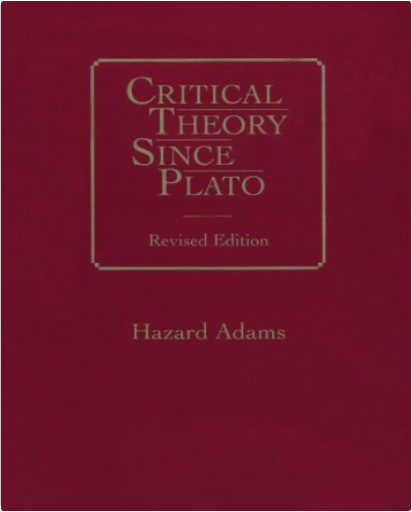 Critical Theory Since PlatoHazard Adams Critical Theory Since PlatoHazard Adams This outstanding anthology traces major critical statements from classic theorists like Plato to the contemporary. This standard historical textbook in the field focuses on important individual thinkers, and not particular schools of thought or isms. Current selections bring the anthology into contemporary times and show students how critical theory has evolved and progressed over time.  Essays on Literature and ArtWalter Pater, Jennifer Uglow Essays on Literature and ArtWalter Pater, Jennifer Uglow Pater, man of letters, influenced Aestheticism and the writing of the 1890s in an immeasurable way. This book gathers together a unique selection of Pater's literary criticism; several essays are printed in their original periodical form, with statements expurgated from later versions. Also included are studies of Wordsworth and Measure For Measure, the well-known essay "Style," as well as material not easily found elsewhere such as "Aesthetic Poetry" and the important original version of "Coleridge." 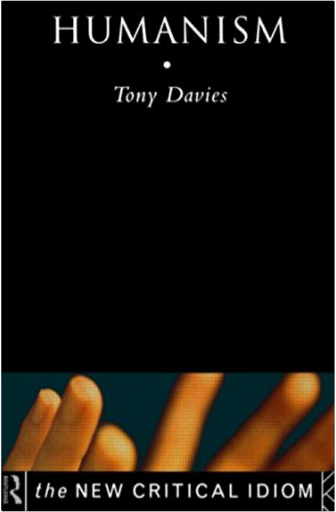 HumanismTony Davies HumanismTony Davies Definitions of humanism as educational movement, philosophical concept or existential ‘life stance’ have evolved over the centuries as the term has been adopted for a variety of cultural and political purposes and contexts, and reactions against humanism have contributed to movements such as structuralism, postmodernism and postcolonialism. 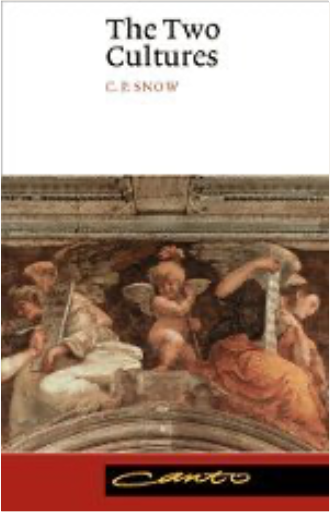 The Two CulturesC. P. Snow The Two CulturesC. P. Snow The notion that our society, its education system and its intellectual life, is characterized by a split between two cultures—the arts or humanities on one hand, and the sciences on the other—has a long history. The reissue of The Two Cultures and its successor piece, A Second Look (in which Snow responded to the controversy four years later) has a new introduction by Stefan Collini, charting the history and context of the debate, its implications and its afterlife. 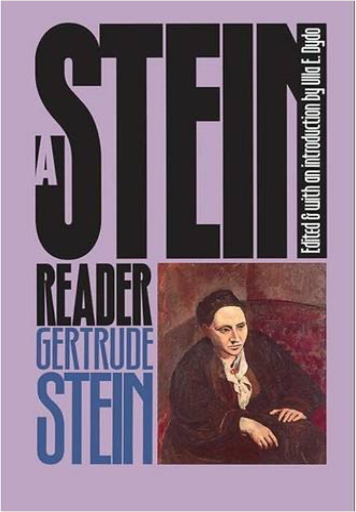 A Stein ReaderGertrude Stein, Ulla E. Dydo A Stein ReaderGertrude Stein, Ulla E. Dydo This important collection presents Gertrude Stein for the first time in her brilliant modernity. Ulla E. Dydo's textual scholarship demonstrates Stein's constant questioning of convention, and A Stein Reader changes the balance of work in print, concentrating on Stein's experimental work and including many key works that are virtually unknown or unavailable. 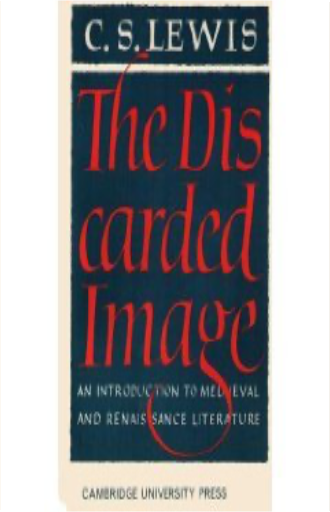 The Discarded Image: An Introduction to Medieval & Renaissance LiteratureC.S. Lewis The Discarded Image: An Introduction to Medieval & Renaissance LiteratureC.S. Lewis The Discarded Image paints a lucid picture of the medieval world view, providing the historical and cultural background to the literature of the middle ages and renaissance. It describes the 'image' discarded by later years as 'the medieval synthesis itself, the whole organization of their theology, science and history into a single, complex, harmonious mental model of the universe'. This, Lewis's last book, has been hailed as 'the final memorial to the work of a great scholar and teacher and a wise and noble mind'. 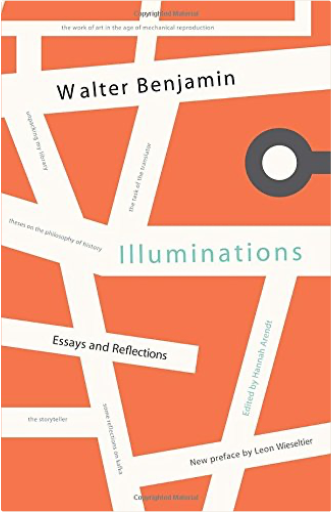 Illuminations: Essays and ReflectionsWalter Benjamin, Hannah Arendt Illuminations: Essays and ReflectionsWalter Benjamin, Hannah Arendt Walter Benjamin was one of the most original cultural critics of the twentieth century. Illuminations includes his views on Kafka, with whom he felt a close personal affinity; his studies on Baudelaire and Proust; and his essays on Leskov and on Brecht's Epic Theater. Also included are his penetrating study "The Work of Art in the Age of Mechanical Reproduction," an enlightening discussion of translation as a literary mode, and Benjamin's theses on the philosophy of history. 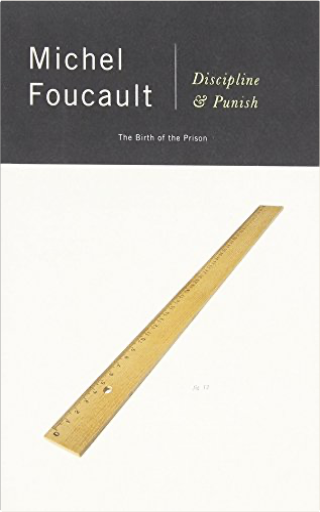 Discipline & Punish: The Birth of the PrisonMichel Foucault Discipline & Punish: The Birth of the PrisonMichel Foucault In this brilliant work, the most influential philosopher since Sartre suggests that such vaunted reforms as the abolition of torture and the emergence of the modern penitentiary have merely shifted the focus of punishment from the prisoner's body to his soul. 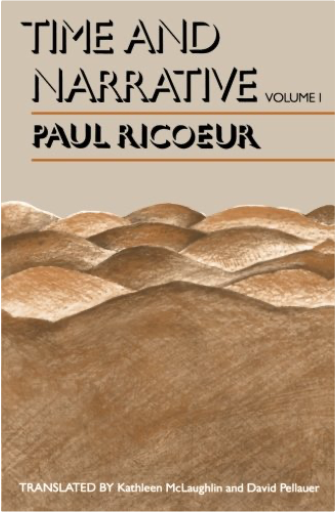 Time and Narrative, Volume 1Paul Ricoeur Time and Narrative, Volume 1Paul Ricoeur Time and Narrative builds on Paul Ricoeur's earlier analysis, in The Rule of Metaphor, of semantic innovation at the level of the sentence. Ricoeur here examines the creation of meaning at the textual level, with narrative rather than metaphor as the ruling concern. 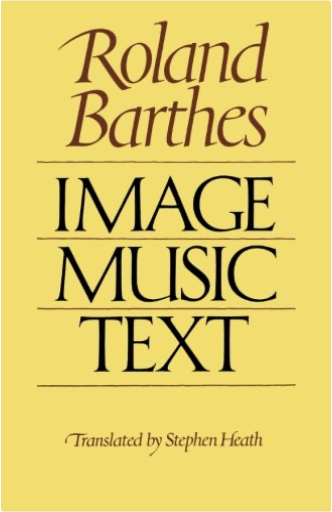 Image-Music-TextRoland Barthes Image-Music-TextRoland Barthes These essays, as selected and translated by Stephen Heath, are among the finest writings Barthes ever published on film and photography, and on the phenomena of sound and image. The classic pieces "Introduction to the Structural Analysis of Narrative" and "The Death of the Author" are also included. 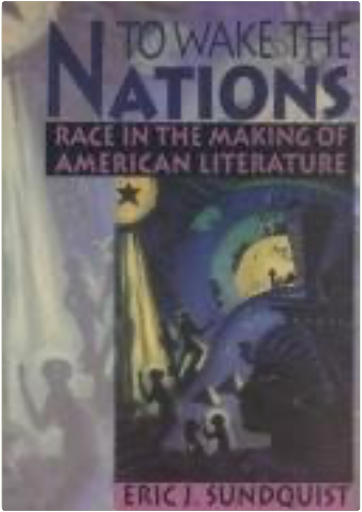 To Wake the Nations: Race in the Making of American LiteratureEric J. Sundquist To Wake the Nations: Race in the Making of American LiteratureEric J. Sundquist This powerful book argues that white culture in America does not exist apart from black culture. The revolution of the rights of man that established this country collided long ago with the system of slavery, and we have been trying to reestablish a steady course for ourselves ever since. To Wake the Nations is urgent and rousing: we have integrated our buses, schools, and factories, but not the canon of American literature. That is the task Eric Sundquist has assumed in a book that ranges from politics to literature, from Uncle Remus to African American spirituals. But the hallmark of this volume is a sweeping reevaluation of the glory years of American literature—from 1830 to 1930—that shows how white literature and black literature form a single interwoven tradition. 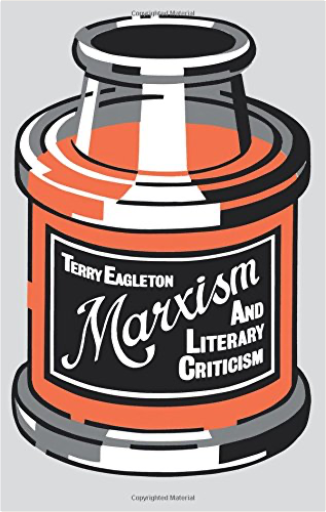 Marxism and Literary CriticismTerry Eagleton Marxism and Literary CriticismTerry Eagleton Marxist literary criticism is becoming increasingly important in Europe as a whole, and interest in the subject is rapidly growing in this country. In this book, Dr. Eagleton analyses the major issues that the subject presents, discussing the writing of Marx and Engels themselves and the work of such critics as Plekhanov, Trotsky, Lenin, Lukacs, Goldmann, Caudwell, Benjamin and Brecht. They are seen from four viewpoints central to Marxist thought: the relation of literature to history, the problem of 'form' and 'content' in literature, the question of literature and political commitment, and the importance of production and technology in art. Dr. Eagleton's exploration of these critical stances throws useful light on the connection between the Marxist approach and structuralism. The author stresses, however, that Marxist criticism cannot be seen simply in academic terms. In his preface he rejects the illusion of 'neutrality' in such a field, and writes: 'Marxist criticism is part of a larger body of theoretical analysis which aims to understand ideologies—the ideas, values and feelings by which men experience their societies at various times. And certain of those ideas, values and feelings are available to us only in literature. To understand ideologies is to understand both the past and the present more deeply, and such understanding contributes to our liberation.' Dr. Eagleton shows the part that Marxist criticism has to play in defining the crucial link between literature and historical conditions, and in so doing has produced a book that is both constructive and committed. |
 Made with Delicious Library
Made with Delicious LibraryDenver, CO zipflap congrotus delicious library Tolva, John
